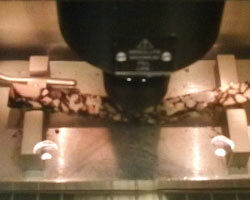Research Reports
Report Details
Abstract
 Field samples were obtained from cores taken from multiple roads around the Salt Lake Valley in Utah and prepared for BBR testing. The response of field cores showed that even though the same binder grade used in the region was the same, the resulting mixtures have significant differences in creep moduli and m-values. This indicates that binder testing alone might not be enough to control the material's creep modulus.
Field samples were obtained from cores taken from multiple roads around the Salt Lake Valley in Utah and prepared for BBR testing. The response of field cores showed that even though the same binder grade used in the region was the same, the resulting mixtures have significant differences in creep moduli and m-values. This indicates that binder testing alone might not be enough to control the material's creep modulus.
The combination of BBR test results and field surveys indicate that both creep modulus and m-value play a significant role in low-temperature performance of asphalt pavements. Pavements with high creep moduli and low m-values are more susceptible to low-temperature thermal distress. From field observations, the field performance of each section was known; by plotting the test results of the field samples on a Black Space Diagram it can be observed that a thermal stress failure envelope might exist. These results will allow to develop asphalt mixtures that have resistance to both low and high temperature distresses. However, more research will be necessary to further define this specification.
How to Cite
Romero, Pedro, and ZacGary L. Jones. Implementation of Low Temperature Tests for Asphalt Mixtures to Improve the Longevity of Road Surfaces, MPC-13-260. North Dakota State University - Upper Great Plains Transportation Institute, Fargo: Mountain-Plains Consortium, 2013.